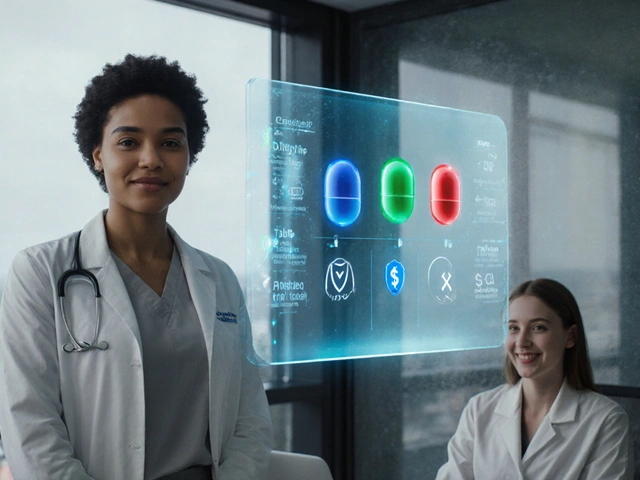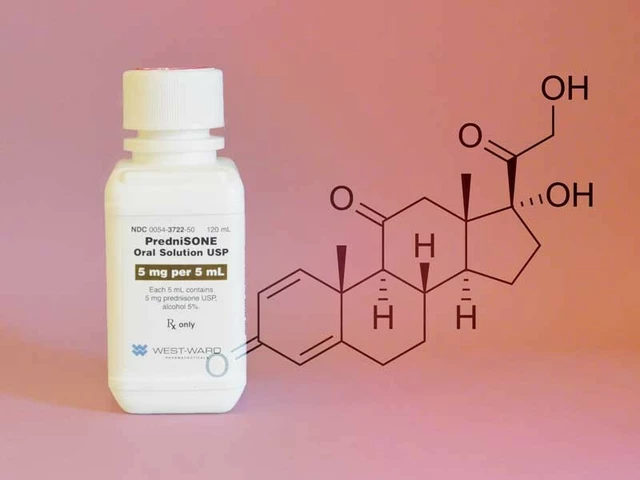Prevention: Practical Health Tips & Medication Safety
Want fewer sick days and fewer trips to the pharmacy? Prevention is about small daily choices that add up. This page gathers clear, usable tips on avoiding infections, protecting your heart and brain, and using medicines safely—especially when buying online.
Everyday prevention tips that actually work
Wash your hands for 20 seconds with soap and water after being in public, before eating, and after coughing. Vaccines cut the risk of serious infections—stay up to date on flu, COVID (if recommended for you), and other shots your doctor suggests. For chronic disease prevention, focus on blood pressure, blood sugar, and cholesterol: get checked regularly and act early if numbers are high.
Move more. Aim for about 150 minutes of moderate activity a week—brisk walking counts. Eat a mix of vegetables, whole grains, lean protein and healthy fats; think Mediterranean-style meals. Stop smoking and limit heavy drinking—both raise stroke and heart disease risk. If you have atrial fibrillation or diabetes, follow your treatment plan closely; managing those conditions cuts stroke and dementia risk.
Smart medication use and safe online buying
Only take antibiotics when a doctor prescribes them. Don’t pressure clinicians for pills; misuse fuels resistance. Finish prescribed antibiotic courses as instructed—unless your doctor tells you otherwise. Keep a written list of your medicines, doses, and allergies and share it at every visit.
Buying meds online? Check the pharmacy’s license, require a prescription, and look for clear contact info and a physical address. Avoid sites that sell prescription drugs without asking for a prescription or that offer unbelievably cheap prices with no verification. Use secure payment methods and read recent user reviews. Our guides like “Where to Safely Buy Oxcarbazepine Online” and reviews of online pharmacies dig into red flags and safer choices.
Watch for bad drug reactions. A sudden rash with blistering, fever, or mouth sores can mean a serious reaction—stop the drug and seek emergency care right away. For less severe side effects, call your provider; many issues can be managed by dose changes or switching drugs.
Use supplements cautiously. Some help—like glucosamine for joint comfort or omega-3 oils for heart health—while others can interact with meds. Tell your doctor about any herbal product or new supplement before you start it.
If you want quick reading, check these posts: an easy guide to safer online pharmacies, practical antibiotic alternatives when one fails, and the link between stroke and dementia so you can prioritize prevention. Prevention isn’t perfect, but these steps lower risk and make your care simpler and safer.
If you’re unsure what to do next, ask your primary care provider. A short conversation about vaccines, screening tests, or safe medicine options usually saves time and trouble later.
The Link Between Depression and Suicide: Warning Signs and Prevention
In my latest post, I explore the profound connection between depression and suicide, highlighting that untreated or severe depression significantly increases the risk for suicidal thoughts and actions. I delve into the warning signs of suicide, such as changes in behavior, feelings of hopelessness, and talk of death or suicide. I also discuss the importance of prevention strategies, such as seeking mental health support, creating a safe environment, and encouraging open communication about feelings. It's a heavy topic, but one that we must address to help save lives. Remember, it's absolutely okay to reach out if you or someone you know is struggling.
How to Reduce the Risk of Deep Vein Thrombosis During Long Flights
During long flights, the risk of developing deep vein thrombosis (DVT) can increase due to prolonged inactivity. To reduce this risk, it's important to keep our legs and feet moving as much as possible. Simple exercises like flexing our ankles, rotating our feet, and walking around the cabin can help maintain proper blood flow. Additionally, staying hydrated and wearing compression stockings can also aid in preventing DVT. Lastly, avoid crossing our legs and try to elevate them whenever possible to further promote circulation.
About
Mental Health, Health and Wellness
Latest Posts


Prednisolone vs. Prednisone: What's the Difference?
By Marcel Kornblum Jun 12, 2023

How to Buy Cheap Generic Yasmin Online Safely - 2025 Guide
By Marcel Kornblum Oct 4, 2025

Tympanites Explained: Causes, Symptoms & Treatment
By Marcel Kornblum Oct 11, 2025


